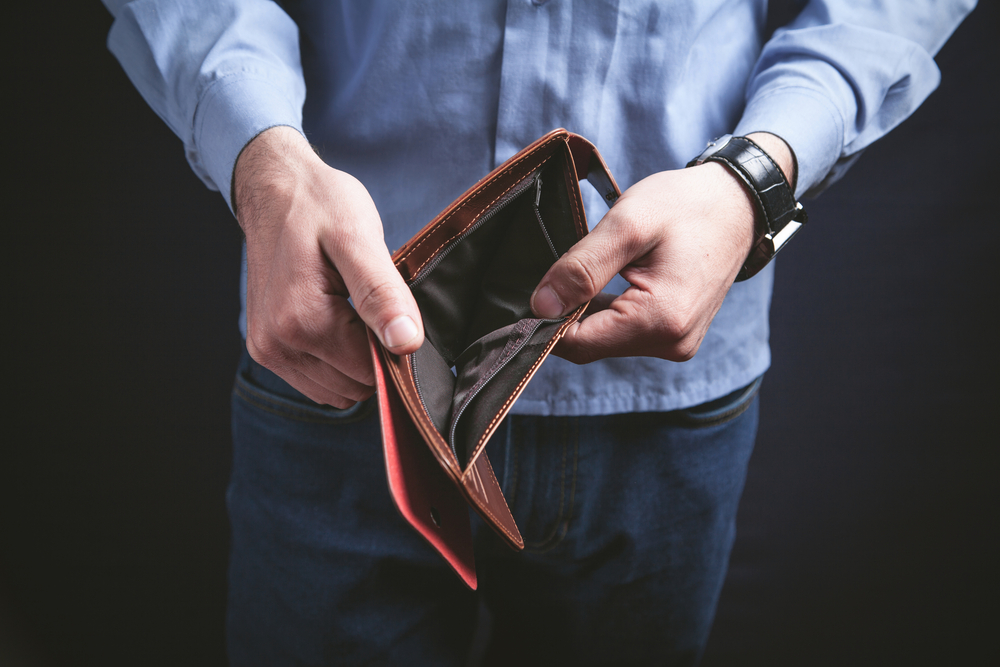Alarmingly, we’re already halfway through 2023. If you weren’t feeling existential enough already, July 1 is here to bring you some less-than-stellar updates. (Let’s just say that you’re going to feel them where it hurts — in your wallet. 😬)
RTL Nieuws just released a list outlining the major changes that will take place in the Netherlands.
These include (but are not limited to) higher taxes for petrol and diesel, increased student rent, preparation for road pricing, and inflation of internet costs. Wat leuk! 🙄
1. The silver lining? Minimum wage will increase
Okay, do you want the good news or the bad news first? The good news is, statutory minimum wage will increase by 3%, along with government benefits (which are dependent on minimum wage). The same goes for the minimum wage for employed youth. 🎉
Unfortunately, that may be the only silver lining. The bad news? Well, statutory interest will increase by 4 to 6%, and subsequently, borrowing money could get even more pricey.
2. Stricter childcare allowance
In addition to a much stricter childcare allowance, child benefits will also be cut down by roughly 3%. Curious about what this means for you? Check out the new rates according to age group here.
Kids under the age of five are losing out on €8, while those aged six to 11 will be missing €9 from their adorable little piggy banks starting next term. Won’t someone please think of the children? 😢
3. Another car-owning downside: petrol inflation
You might want to get used to riding that fiets (bicycle) of yours more regularly, since petrol and diesel will reportedly get hit by inflation in the next six months.
Petrol prices per litre will increase by €0.14, while diesel prices will also shoot up by €0.10. Public transport is starting to look really appealing. 😮💨
4. Kiss caravan trips goodbye! Thanks, road pricing
Motorists beware because it’s a bad year for cars. Roughly half of all car owners in the Netherlands are going to end up losing money depending on the incoming road pricing, reports RTL Nieuws.
Working Netherlands, D66 has nothing to do with that. With rosé-drinking e-cargo bike folk. Road pricing hangs like a thundercloud over the working Netherlands— R⭕B van K 🟧💪🇺🇦💪 (@RobvanKempen1) June 3, 2023
Though, before you go drowning your sorrows at an after-work borrel, there’s still a tiny sliver of good news left: we have a few more years to prepare.
Road pricing, which taxes you on the use of roads as opposed to owning the car, won’t be fully implemented until 2030.
For those of us who love travelling by car or are partial to road trips, this definitely puts a damper on the holidays. Especially considering how much the Dutch pride themselves on frugal caravan trips.
5. As if student housing couldn’t get more expensive
July 1 will also be a solemn day for any university students out there, as student housing rent is predicted to increase by up to 3.1% for those who pay over €300 monthly.
If you’re somehow fortunate enough to be paying less than that, you won’t be let off the hook either — you’ll be charged up to €25 more than that.
READ MORE | Students, listen up: you could now get €440 a month just for studying in the Netherlands
On the bright side, however, lower-income housing will experience a much-needed decrease in rent, which is said to help out half a million people.
6. No wifi? Build a treehouse like it’s the 80s…said no one ever
Do you, like the rest of us, need the internet to function? Well, internet prices will also increase for many people this summer, along with cable television and the phone bill.
READ MORE | 8 things to know about getting Dutch internet
Beloved telecom providers KPN and Ziggo will also be struck by inflation on July 1. KPN packages will rise by 6%, while Ziggo’s will climb up by 8.5%. Oof. 😬
7. “Life in plastic”? It’s expensive, not “fantastic”
To top it all off, that Starbucks cappuccino you like to get in a to-go cup at the station every morning could cost more.
READ MORE | You’ll now be charged extra for that plastic packaging at your fave Dutch stores
With the incoming plastic tax, you could be left wondering whether the price is worth it, or whether you should just bring coffee in a thermos from home.
Which one of these changes will hurt your wallet the most? Let us know in the comments below!



